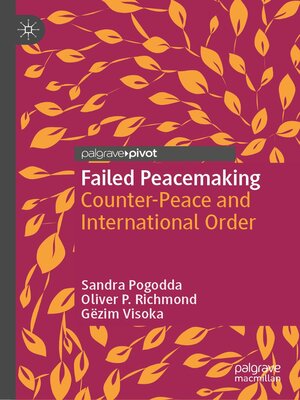Failed Peacemaking
ebook ∣ Counter-Peace and International Order · Rethinking Peace and Conflict Studies
By Sandra Pogodda

Sign up to save your library
With an OverDrive account, you can save your favorite libraries for at-a-glance information about availability. Find out more about OverDrive accounts.
Find this title in Libby, the library reading app by OverDrive.



Search for a digital library with this title
Title found at these libraries:
| Loading... |
Spoilers and tactical blockages to peace have connected across local, national, regional and international scales, highlighting ideological divisions. Drawing on counter-revolutionary theory, the concept of counter-peace is used as a tool to critically interrogate a systemic array of blockages to peace. Distinct counter-peace patterns are now entangled in peace and reform processes, including the stalemate pattern, the limited counter-peace, and the unmitigated counter-peace patterns. Across cases, once tactical blockages begin to form these patterns, they become systemic and ultimately enable conflict escalation. Consequently, the intimate entanglement of the existing international peace architecture with counter-peace processes points to ideological divisions in international order, as well as the growing gulf between diminished practices of peace and reform with critical scholarship on peace, justice, and sustainability.






